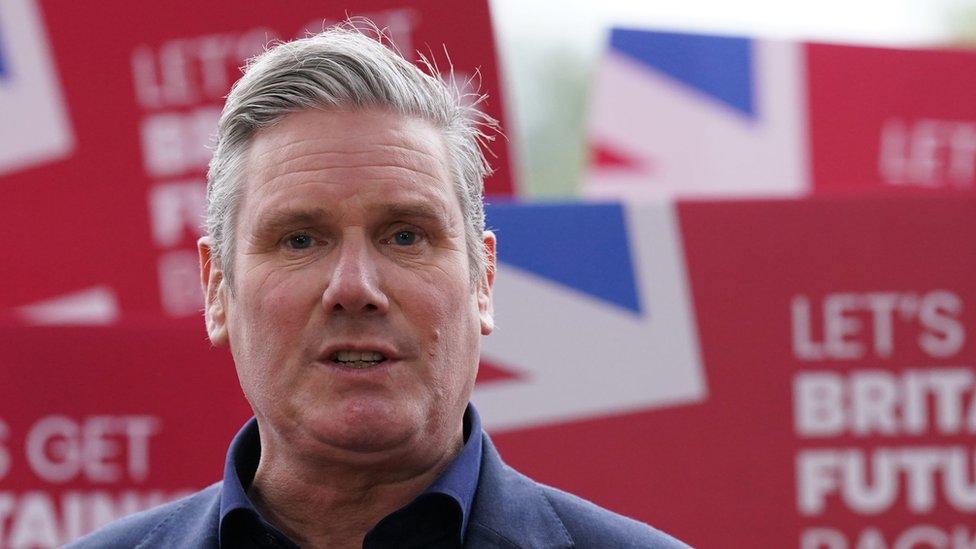Labour ceasefire stance divides voters in target seats
- Published
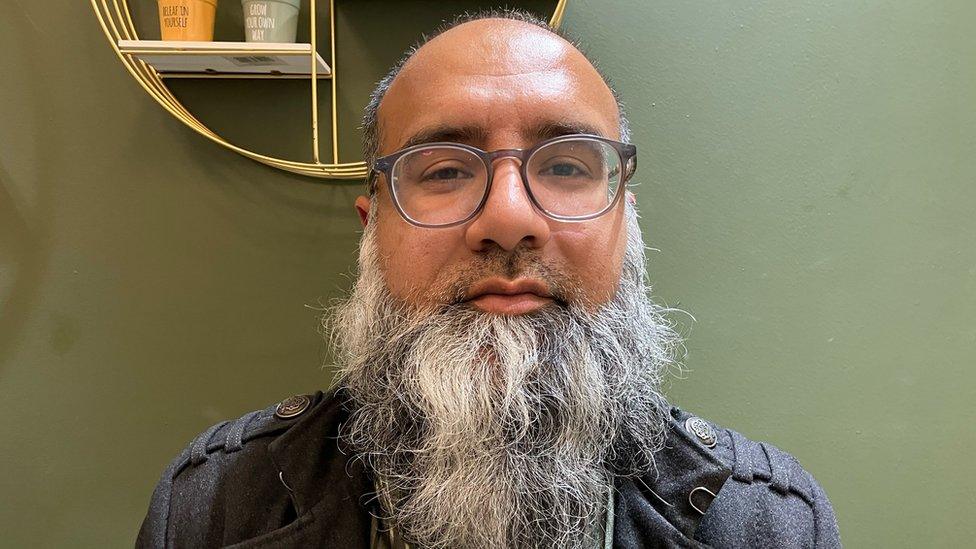
Waheed says Muslim voters feel "taken for granted" by Labour
While they are united in their horror at the Israel-Gaza conflict, the Muslim and Jewish communities of Bury have very different views as to the stance the UK's politicians should be taking.
The borough has an above average Muslim and Jewish population, and is split into two parliamentary constituencies - Bury North and Bury South.
Bury North is currently held by the Conservatives and Bury South is Labour - the MP Christian Wakefield defected from the Tories in 2022.
Both seats are Labour targets for the next election.
The UK government and the Labour Party have both called for a "humanitarian pause" in the conflict, to allow aid into Gaza and to get Israeli hostages out.
The Labour Party has now tabled a motion in the House of Commons, which says that the party "believes all human life is equal and that there has been too much suffering… over the past month in Gaza."
It calls on all parties to follow the "rules based international order" and strengthens language around the need to allow in humanitarian assistance.
But Bury resident Waheed Arshad illustrates the problem the Labour Party has by not calling for a permanent ceasefire.
He has previously voted Labour, but says Muslim voters in the area feel "taken for granted" by the party, which will impact both their voting and their enthusiasm for campaigning.
Many are watching Wednesday's potential vote in the Commons on the issue closely, he believes, "disappointed" in the Labour leadership's positioning so far.
"Disappointed is probably an understatement on this particular issue. You can see the frustration in the way people are talking," he says.
"There's no real recognition of the fact that actually this is a lot of people taking this position, they want a ceasefire and that's not being reflected. It's very easy for us to say do it because Muslims are saying it or we can swing it - I really want him to do it because it's the right thing to do and from a humanitarian point of view."
Waheed has heard opponents of a ceasefire argue that it might give Hamas the opportunity to regroup, but doesn't accept that view.
"You've got to look at the bigger picture in terms of where we are at now with close to 10,000 deaths. Where do we draw the line?"
In the absence of Labour calling for a permanent ceasefire, Waheed says he would look to support an independent candidate. "Conversations are starting to happen", he says, about council candidates who could stand against Labour councillors.
In total, there are 14 marginal seats the Labour Party would hope to win at the next general election, where the Muslim population is bigger than the current Conservative majority.
There are five Labour target seats where Jewish voters could play a crucial role.
But while ethnicity and religion are significant factors in determining how people feel about the Israel-Gaza war, clearly individuals will make their own judgements as to which party or candidate represents them best.
Hendon in north London,which is currently held by the Conservatives,is another marginal constituency with a higher than average Jewish and Muslim population.
Laurence Stein is the kind of swing voter Labour will be hoping to win over at the next election.
In the past he's voted for both Labour and Conservative and the crisis in the Middle East is the sort of issue that could decide his vote.
"If you'd asked me this question a few weeks ago, I probably would have said I'd vote Labour," he tells me. "And the reason I would have said that is because I am concerned about the cost of living."
"Because I feel Rishi Sunak has been a really powerful ally of the Jewish people certainly since 7 October, and in truth before then as well, my views are changing and if there was a general election tomorrow, I would vote Conservative."
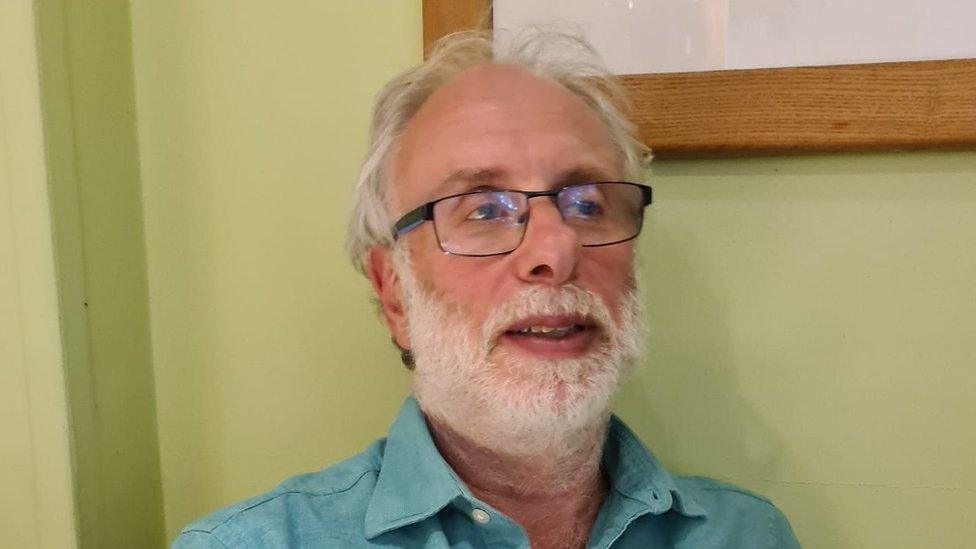
Laurence likes Sir Keir Starmer but says he is leaning towards voting Conservative
Under Jeremy Corbyn's leadership, the Equality and Human Rights Commission found the Labour Party had been responsible for unlawful acts of harassment and discrimination over antisemitism.
Mr Corbyn responded by saying that the scale of antisemitism within Labour had been "dramatically overstated" by his opponents. He now sits as an independent MP and is barred from standing as a Labour candidate.
Laurence had been encouraged by Sir Keir Starmer's moves to rid his party of antisemitism, but is now uneasy about the views of some Labour colleagues as they call for a ceasefire.
"I like Keir Starmer. I think he's been a great ally to the Jewish people as well in this country but I am worried about the people sitting next to him and behind him."
When asked if there was anything the Labour leader could do to win him back, Laurence is ready with an answer.
"I think he could go to visit Israel and give his support to the Israeli government."
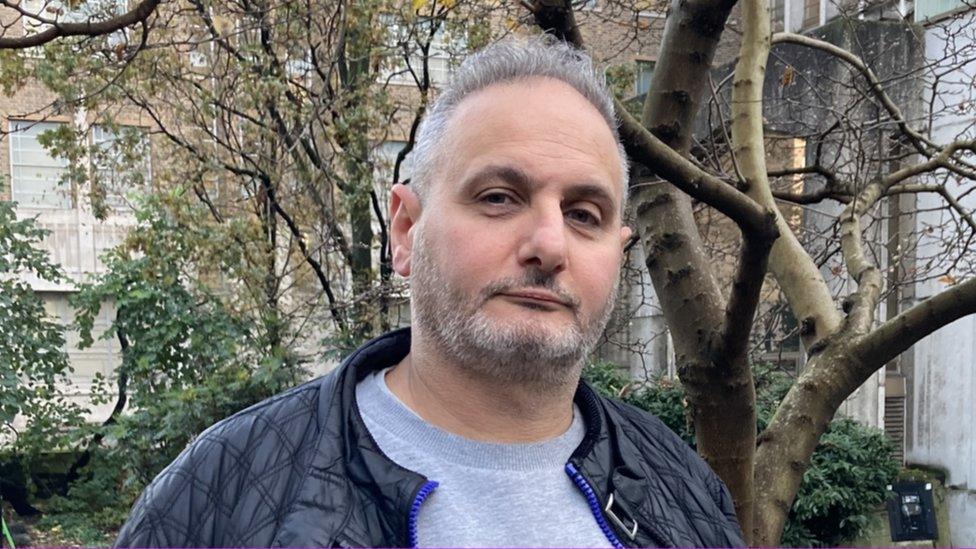
Daniel says Sir Keir Starmer has shown "solidarity with the Jewish people"
Daniel Stiassny, another Hendon constituent, says Sir Keir's position has cemented his support among some Jewish voters.
He says he's voted Conservative at every election since 1992 but Labour has now won his vote.
"Had Starmer said he's calling for a ceasefire, had Starmer not backed the Jewish community, I think it would have been a disaster for them in terms of the Jewish vote," he says.
"I think Keir Starmer has shown some good solidarity with the Jewish people, some good solidarity with Israel and I hope he can maintain and I am sure they will.
"There will be some people on the left who will be trying to push him, sway him - but I think he's held his nerve."
Sir Keir will be hoping that by strengthening his language he can avoid further frontbench resignations and hold together a party that remains significantly ahead in the polls.
But with both Labour and the Conservatives so far taking a very similar stance on the Israel-Gaza war, there are many who feel their voices are not being heard.
Related topics
- Published8 November 2023
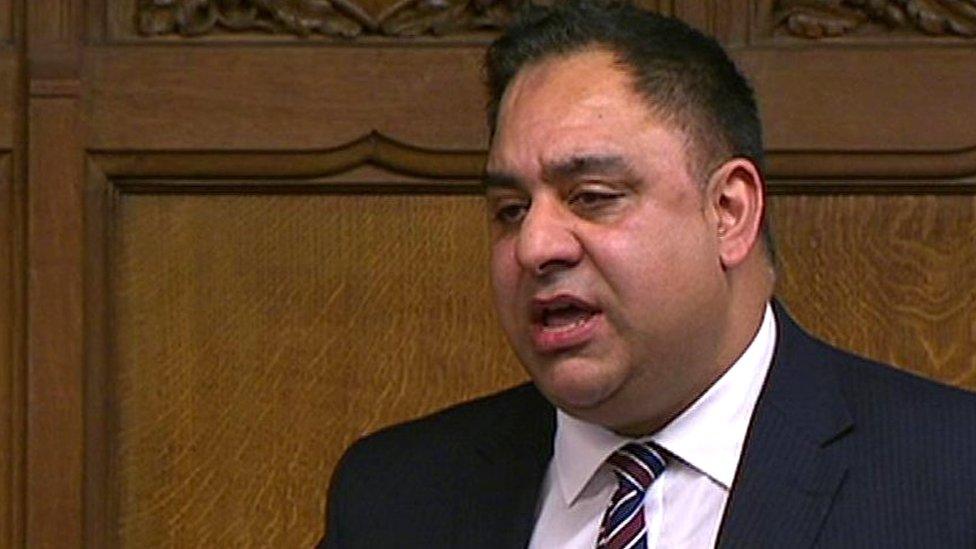
- Published31 October 2023
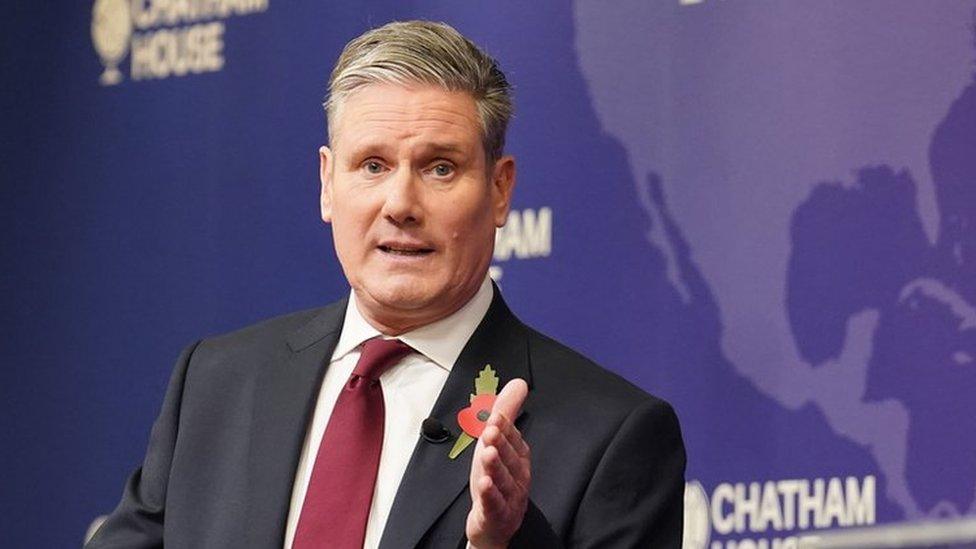
- Published27 October 2023
